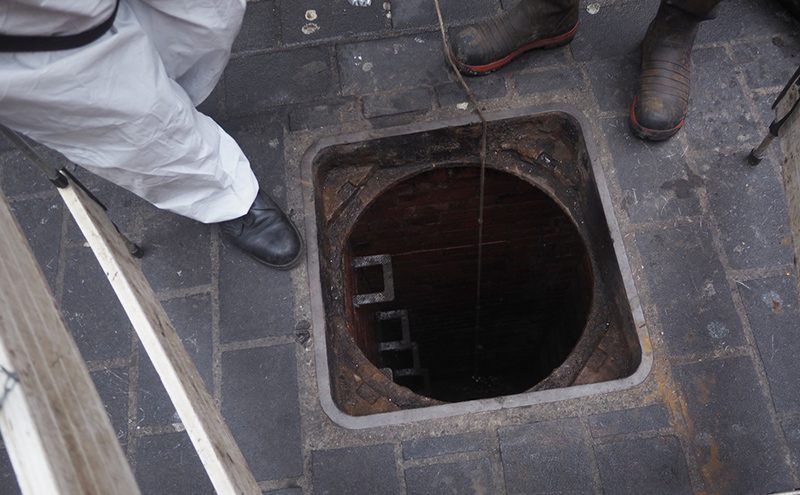
With Michelle Ringland, Head of Marketing, Lanes Group (the firm that removed the Whitechapel fatberg).
Why are we so fascinated with fatbergs?
“I personally think the fascination with fatbergs comes from a childlike fascination with poo and all things poo-related; even as adults we still like to discuss poo. If we had ‘smellovision’ then the fascination would be even greater. You only had to watch the reactions on Gogglebox when they reviewed the Fatberg Autopsy show to see this fascination. It’s the same reaction I get every day when I discuss my job with people; they are fascinated and always ask about the smell. The answer is that fatbergs actually smell worse than poo in the sewers and drains.”
Do you think it’s odd that a fatberg could form in a tiny seaside town like Sidmouth?
“It is not at all odd that a fatberg has formed in the small seaside town of Sidmouth, close to the sea. Here at Lanes we are dealing with these issues day in and day out. It’s the huge fatbergs in main sewers that makes the headlines, which is good for raising awareness. But fatbergs occur in towns and cities across the UK daily, in peoples’ manhole chambers, in gardens and in lateral connections that drop into the main sewers, such as the one in Sidmouth. The smaller drains feed the huge sewers. The industry has a message about only flushing pee, poo and paper, but perhaps it’s time we also started telling people not to feed the fatbergs.”
Tell us about the fatberg on display at the Museum of London
“The visitor numbers at the Museum of London soared when the Whitechapel fatberg was put in place. They were delighted with the response. It was a fabulous display and very well received, and it continues today with the Fatcam which is watching the fatberg decay. https://www.museumoflondon.org.uk/discover/fatcam-watch-fatberg-live. If fatbergs weren’t so unpleasant and dangerous, because of all the bacteria and bugs that are in them, they should be displayed across the country so that everyone can see what is hidden beneath the streets. We have to raise awareness to stop this ‘out of sight out of mind’ mentality. Lanes runs a Fatberg Fighters awareness programme with school children, where we teach them about how fatbergs are formed and how to avoid them. Hopefully our work will mean that the next generation will be more educated and responsible when it comes to what can and cannot be put down the drain.”
What do fatbergs tell us about modern society?
“Modern day society in developed countries is used to convenience, and this includes the luxury of having a fully functioning sewer and drainage network that is reliable. Some people holidaying in Greece don’t even put their toilet paper down the drains because they realise that the sewer system there cannot cope with it in the same way that ours does.
Couple that with packaging and marketing from the manufacturers of the many, many disposable products – claiming and labelling that their products are ‘flushable’ – and you end up with a bad mix of lack of knowledge and miseducation.
Take for example ‘flushable’ cat litter – why on earth would anyone want to dispose of cat litter down their toilet? And why would anyone think that is acceptable?
Then of course we have the huge ‘flushable wipes’ debate. There are no flushable wipes on the market that would stand the ‘flushability’ tests that are required and acceptable by the utility sector. The tests that they conform to are their own industry tests. Does that stack up? It’s almost like self regulation. But the non-wovens sector is worth millions of pounds and there is obviously going to be push back from the industry when you try to discourage this behaviour, because their products are all about convenience.
All these items like disposable wipes should not go down the sewers because that is what most fatbergs consist of, alongside the FOG (fats oils and grease) that is poured down sinks and solidifies then mixes with all this debris.
When the government suggested it was going to ban wet wipes in 2018, the outrage on forums such as Mumsnet was unbelievable. But when are people going to take responsibility for their own actions? The people who have been affected by sewer floods that are caused by blockages created by wipes and FOG do tend to change their habits once they have seen sewage spilling into their homes and gardens. It’s a hard lesson to learn when affected by this distressful situation.”
Lanes conducted a survey into public opinion around fatbergs and the full data can be viewed via this link: bit.ly/fatbergdata.







